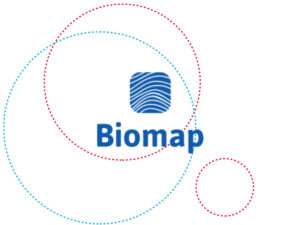On 1 April, 2019, the EU-funded research project BIOMAP (Biomarkers in Atopic Dermatitis and Psoriasis) kicked off its activities with the aim of improving the lives of patients affected by the two most common inflammatory skin conditions. Addressing key unmet needs in treating atopic dermatitis and psoriasis by analysing data from more than 50 000 patients, the five-year project will have a broad impact on disease understanding, patient care and future therapies.
The team comprises 26 academic and five industry partners as well as five patient organisations. The LCSB’s Bioinformatics Core led by Prof Reinhard Schneider will be responsible for data management and analysis as well as the development of a disease map. The European Innovative Medicines Initiative (IMI) and the participating pharma companies provide EUR 20.8 million funding for this first IMI project in the field of dermatology.
Adressing the two most common inflammatory skin conditions
Atopic dermatitis and psoriasis affect more than 300 million people worldwide and are highly variable in terms of onset, severity, progression over time and response to treatment. Resulting in significant morbidity and an increased risk for associated conditions such as arthritis and asthma, inflammatory skin diseases are a huge burden to patients and families, care-givers and healthcare systems. Yet, despite many years of research, there are still significant gaps in the understanding of both conditions.
A first IMI public-private partnership in dermatology
The renowned clinicians and scientists of BIOMAP, who have now joined forces in a large public-private partnership, will examine the causes and mechanisms of these conditions. By analysing the largest collection of patient data ever and performing advanced molecular investigations at the single cell level and in the tissue context, they aim at identifying biomarkers for variations in disease outcome. Taking advantage of recent technical developments in translational medicine, the project will drive drug discovery and improve direct disease management by combining clinical, genetic and epidemiological expertise with modern molecular analysis techniques and newly-developed tools in bioinformatics.
Towards personalised medicine approaches
Assuming that the variation in symptoms and disease progression reflects fundamental differences at a molecular level, the researchers will take a holistic, systematic approach to identify patient subgroups with different subtypes of disease and different responses to therapy. Additionally, the BIOMAP consortium aims to examine the genetic and environmental factors which exert additional influence on disease outcome and treatment response as well as measurable factors in the patients’ blood and skin which reveal the disease subtype they belong to. In an unprecedented analysis of harmonised clinical and molecular data from more than 50 000 patients as well as healthy individuals, the BIOMAP researchers aim to derive a new model for disease classification in order to provide each patient with optimal treatment and an individualised therapy scheme.
“We are excited to be part of this large endeavour,” says Prof Reinhard Schneider, work package leader of BIOMAP and principle investigator at the LCSB. “With our standardized pipeline and long-standing expertise for data management and analysis of large patient cohorts we hope to contribute to the next generation of precision therapies that can improve the lives of patients.”
BIOMAP is funded by the Innovative Medicines Initiative 2 Joint Undertaking under Grant Agreement No. 821511 and in-kind contributions of the participating pharma companies. The Joint Undertaking receives support from the European Union’s Horizon 2020 research and innovation programme and EFPIA.
The project will officially kick off its activities with a first meeting in London on 10-12 April, 2019.
